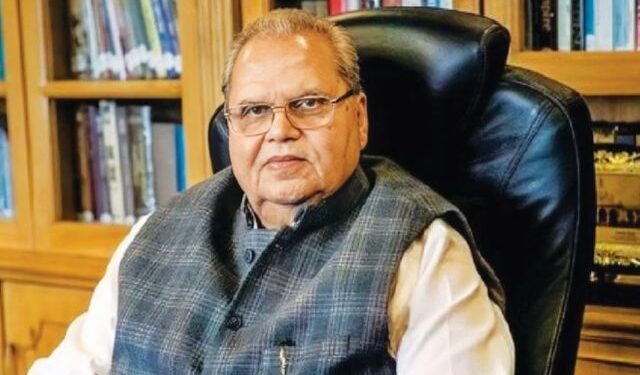Former Governor and veteran politician Satya Pal Malik passed away today at the age of 79 at Delhi’s RML Hospital after battling a prolonged illness.
Known for his outspoken views and unwavering stance on political issues, Malik had been admitted to the ICU due to deteriorating health conditions.
Malik’s political journey spanned decades, marked by his tenure as Governor of Jammu & Kashmir, Bihar, Goa, and Meghalaya. He had also held an additional charge as the Governor of Odisha, from March 21 to May 28 in 2018.
He was often in the spotlight for his candid remarks, especially those critical of the central government, which earned him both admiration and controversy.
Born on July 24, 1946, Malik held several key gubernatorial roles during his distinguished public service career. He was the 10th and final Governor of the erstwhile state of Jammu and Kashmir, serving from August 2018 to October 2019—a tenure marked by the historic abrogation of Article 370 on August 5, 2019. Coincidentally, this constitutional milestone occurred exactly six years before his death.
Prior to his assignment in Jammu and Kashmir, he served as Governor of Bihar (2017–2018) and briefly held additional charge of Odisha in 2018. After completing his J&K tenure, he went on to serve as Governor of Goa and later as the 21st Governor of Meghalaya, a position he held until October 2022.
Malik’s political journey began in the Uttar Pradesh Legislative Assembly (1974–77), followed by two terms in the Rajya Sabha representing Uttar Pradesh (1980–1989). He was also elected to the 9th Lok Sabha from Aligarh (1989–91) as a member of the Janata Dal.
Widely respected across party lines, Malik was known for his outspoken views and candid commentary on national affairs—even while holding constitutional posts. His straightforwardness often sparked debate, drawing both admiration and criticism.
Political leaders from across the spectrum have expressed their condolences, acknowledging his steadfast dedication to public service and his consistent advocacy for principled governance.




























